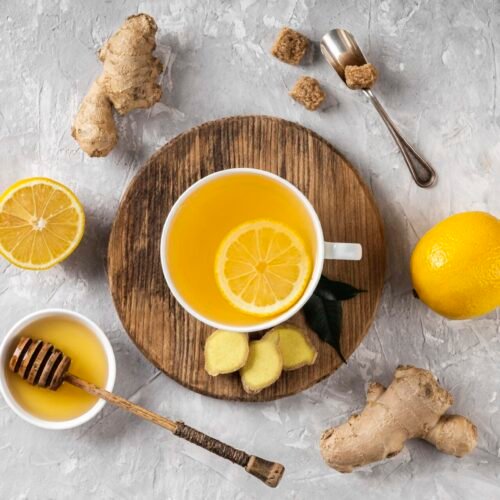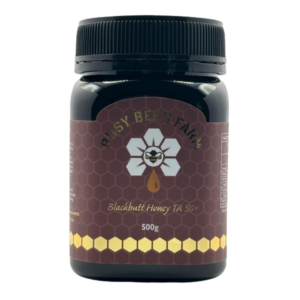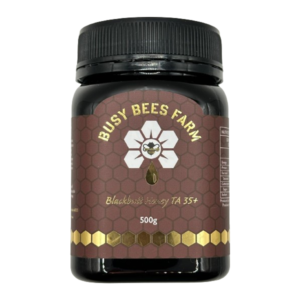
Ginger tea with honey and lemon is a blend that has been cherished across cultures for centuries. Originating from ancient medicinal practices, this soothing beverage has found its place in households around the world for its remarkable health benefits and comforting taste. The combination of ginger, honey, and lemon is not only refreshing but also imbued with a rich cultural and historical significance.
Ginger, a root known for its robust flavor and medicinal properties, has been used in traditional medicine in various cultures, from Ayurveda in India to Traditional Chinese Medicine. Honey, often referred to as “liquid gold,” has been prized for its natural sweetness and healing properties since ancient times. Lemon, with its sharp and invigorating citrus notes, adds a perfect balance to the mix, bringing a burst of vitamin C and a host of other nutrients.
The popularity of ginger tea with honey and lemon can be attributed to its multifaceted benefits. This blend is renowned for its ability to soothe digestive issues, alleviate cold symptoms, boost the immune system, and enhance overall well-being. Its anti-inflammatory and antioxidant properties make it a go-to remedy for many common ailments. In addition to its health benefits, the combination of ginger, honey, and lemon creates a harmonious flavor profile that is both invigorating and calming, making it a preferred choice for many tea enthusiasts.
The adoption of this blend in various cultures speaks volumes about its effectiveness and versatility. From being a staple in Asian households to its resurgence in Western wellness trends, ginger tea with honey and lemon has proven to be a timeless remedy. Whether enjoyed as a morning pick-me-up or a soothing nightcap, this tea offers a delightful way to incorporate natural health-boosting ingredients into one’s daily routine.
Ginger, honey, and lemon are not only renowned for their distinct flavors but also for their significant nutritional benefits. Each ingredient offers a unique set of vitamins, minerals, and antioxidants that contribute to overall health.
Ginger is celebrated for its potent anti-inflammatory properties, largely attributed to the presence of compounds like gingerol. These compounds can help reduce inflammation and may alleviate symptoms associated with conditions such as arthritis. Additionally, ginger is known to aid digestion, reduce nausea, and improve cardiovascular health by lowering cholesterol levels and preventing blood clotting.
Honey, a natural sweetener, is packed with antioxidants, including flavonoids and phenolic acids, which help combat oxidative stress in the body. Its antimicrobial properties are particularly beneficial in promoting wound healing and soothing sore throats. Honey also contains trace amounts of vitamins and minerals, such as vitamin C, calcium, and iron, which contribute to its overall nutritional profile.
Lemon is an excellent source of vitamin C, a powerful antioxidant that supports the immune system, aids in the absorption of iron, and promotes healthy skin by stimulating collagen production. Lemon also provides other essential nutrients like potassium, vitamin B6, and dietary fiber, which are crucial for maintaining cardiovascular and digestive health.
When combined in a tea, ginger, honey, and lemon work synergistically to enhance their individual benefits. The anti-inflammatory effects of ginger, the antimicrobial properties of honey, and the high vitamin C content of lemon create a potent blend that can support immune function, improve digestion, and provide relief from common respiratory ailments. This harmonious combination not only offers a delightful taste but also a powerful health boost, making ginger tea with honey and lemon a beneficial addition to any diet.
Ginger tea with honey and lemon offers a multitude of health benefits, many of which are supported by scientific research. One of the most notable advantages is improved digestion. Ginger contains compounds like gingerol and shogaol that stimulate digestive enzymes, thereby enhancing the breakdown and absorption of nutrients. Additionally, the natural acidity of lemon helps to balance stomach pH, promoting smoother digestive processes.
Another significant benefit of this herbal blend is its ability to enhance immune function. Ginger is known for its anti-inflammatory and antioxidant properties, which can help in combating oxidative stress and reducing inflammation. Honey, on the other hand, has antimicrobial properties that can assist in fighting off infections. Combined with the high vitamin C content in lemon, this tea serves as a potent immune booster, particularly useful during cold and flu season.
Relief from cold and flu symptoms is another compelling reason to consume ginger tea with honey and lemon. The warm tea helps to soothe a sore throat, while ginger acts as a natural decongestant, helping to clear nasal passages. Honey adds a soothing layer to the throat, reducing irritation, and lemon provides a dose of vitamin C, further aiding in recovery.
Beyond these common uses, this tea has potential benefits in managing nausea, reducing muscle pain, and aiding in weight loss. Ginger has long been used as a natural remedy for nausea, including morning sickness during pregnancy and chemotherapy-induced nausea. When it comes to muscle pain, the anti-inflammatory properties of ginger can provide relief. As for weight loss, the combination of ginger and lemon can boost metabolism and promote fat burning, while honey offers a healthier alternative to refined sugar.
Anecdotally, many individuals have reported positive experiences with this tea blend. Testimonials often highlight its effectiveness in alleviating symptoms of indigestion, colds, and even chronic pain conditions. However, it is essential to note that while ginger tea with honey and lemon is generally safe for most people, some may experience side effects. These can include heartburn, bloating, or allergic reactions. Individuals on medication or with specific health conditions should consult with a healthcare provider before incorporating this tea into their routine.
Creating the perfect cup of ginger tea with honey and lemon is a straightforward process that yields a refreshing and healthful beverage. Begin by gathering the necessary ingredients and kitchen tools. You will need fresh ginger root, honey, a lemon, and water. A grater or peeler, a sharp knife, a saucepan, a strainer, and a teapot or cup are essential tools for this recipe.
When selecting ginger, opt for firm and smooth roots with a spicy aroma. Organic ginger is preferable to avoid pesticides. For honey, raw or organic options are best, as they retain more nutrients and antioxidants. Choose fresh, juicy lemons with a bright, unblemished skin to ensure maximum flavor and vitamin content.
To prepare the tea, follow these steps:
1. Peel and thinly slice or grate a 2-inch piece of fresh ginger.
2. Bring 4 cups of water to a boil in a saucepan.
3. Add the ginger slices to the boiling water and reduce the heat to a simmer. Allow the ginger to steep for 10-15 minutes, depending on your preferred strength.
4. Strain the tea into a teapot or directly into cups.
5. Squeeze the juice of one lemon into the tea and add 1-2 tablespoons of honey, adjusting to taste.
6. Stir well and serve hot. Optionally, garnish with a lemon slice or a sprig of mint.
For variations, consider adding a dash of turmeric for additional anti-inflammatory benefits or a pinch of cayenne pepper for a spicy kick. Green tea leaves can be included for an added boost of antioxidants. If you prefer a milder flavor, reduce the amount of ginger or steep for a shorter period.
Pro-tips for enhancing the flavor and health benefits include using filtered water, which can improve the overall taste, and allowing the tea to cool slightly before adding honey, as high temperatures can destroy some of its beneficial properties. Experiment with different proportions to find your perfect balance of flavors.











